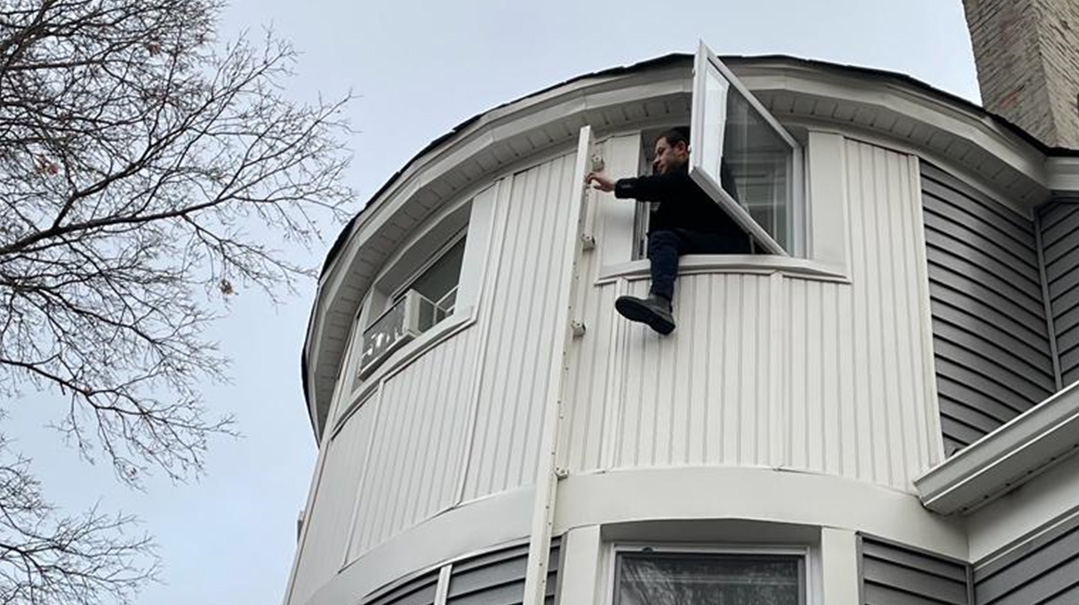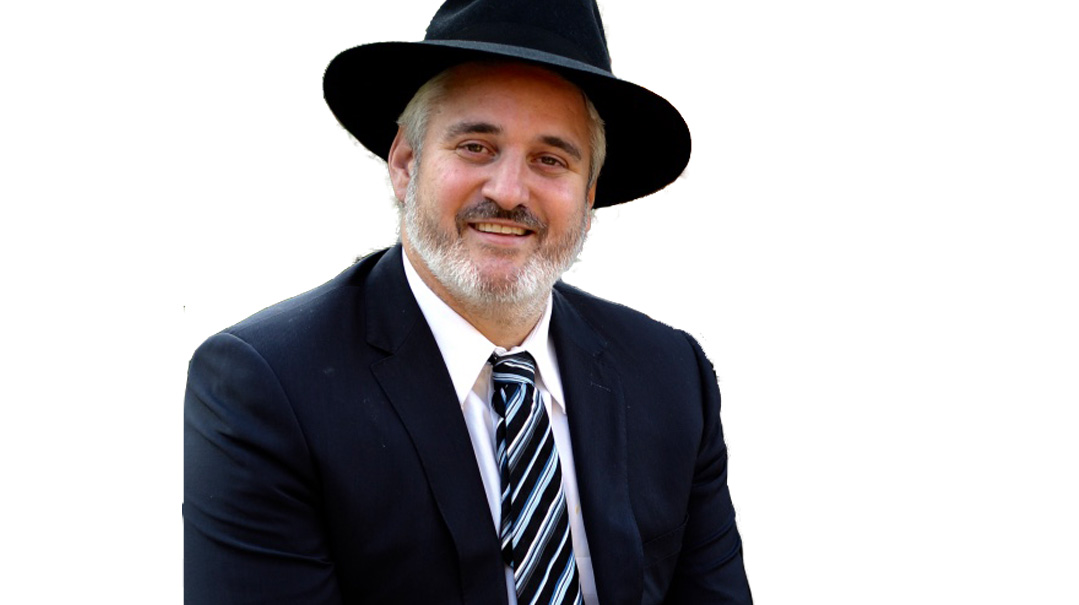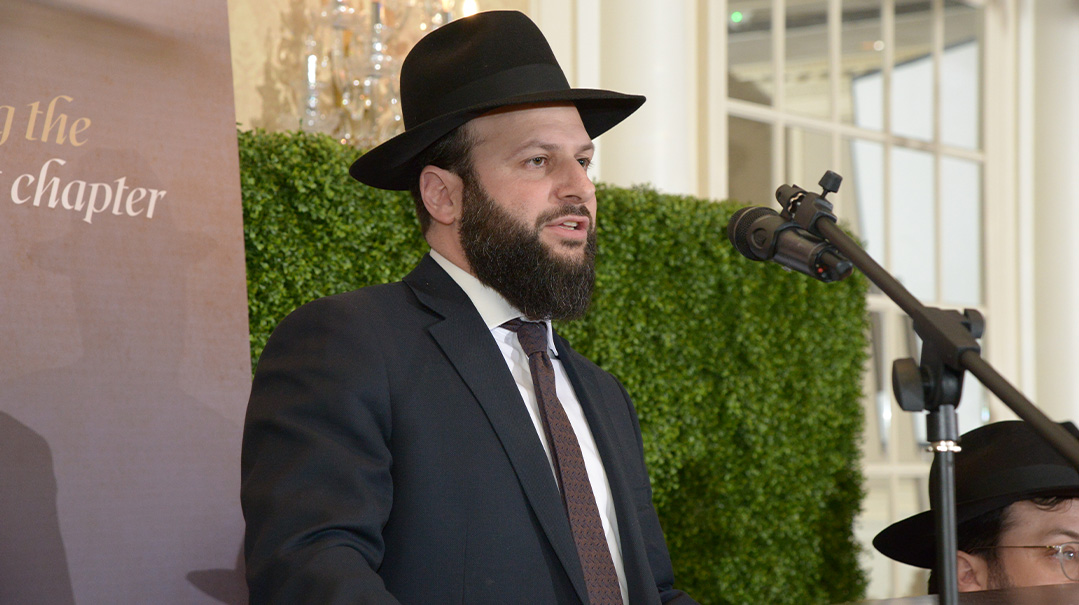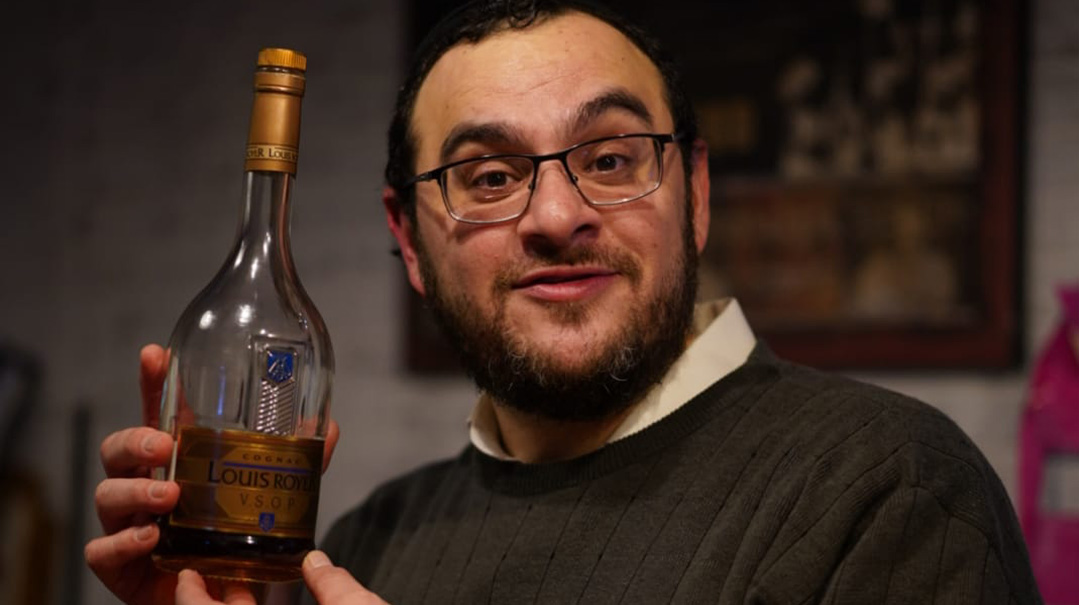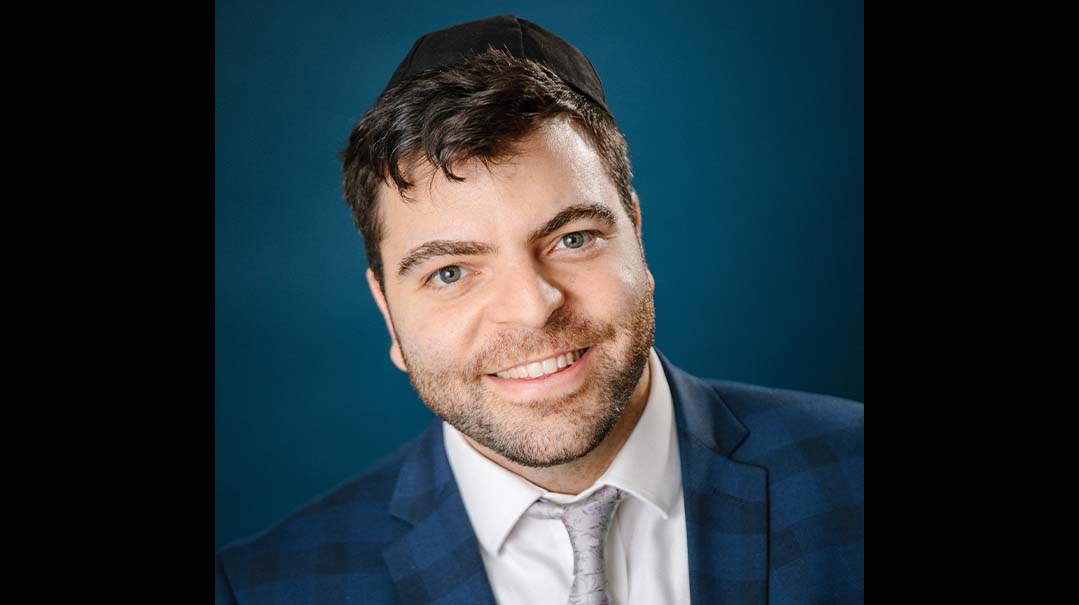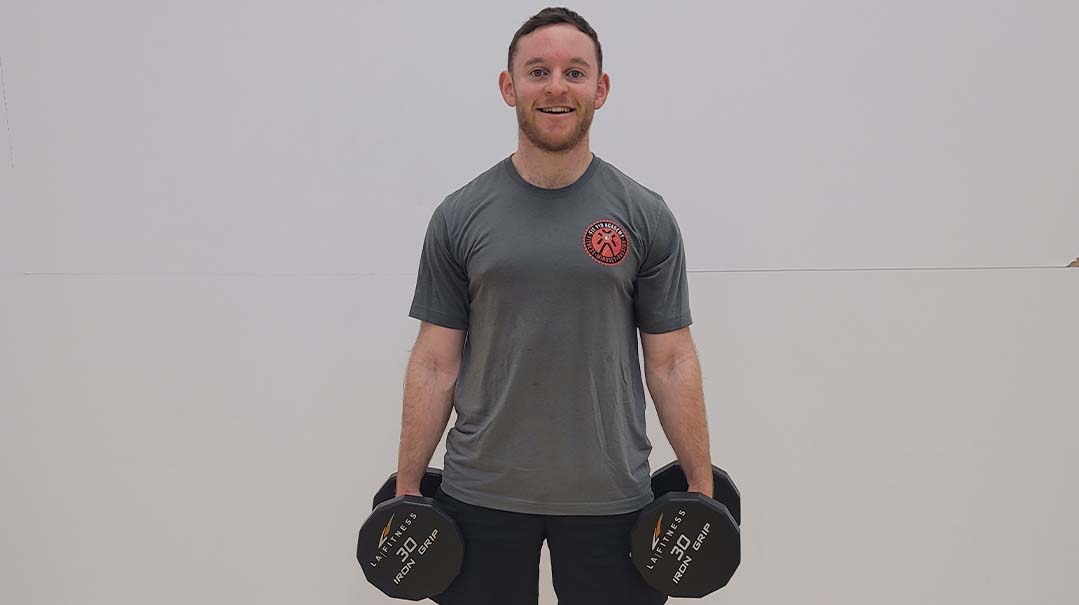10 Questions for Doron Lazarus

Doron Lazarus is the founder of Executive Sleep Consulting. He lives in South Bend, Indiana
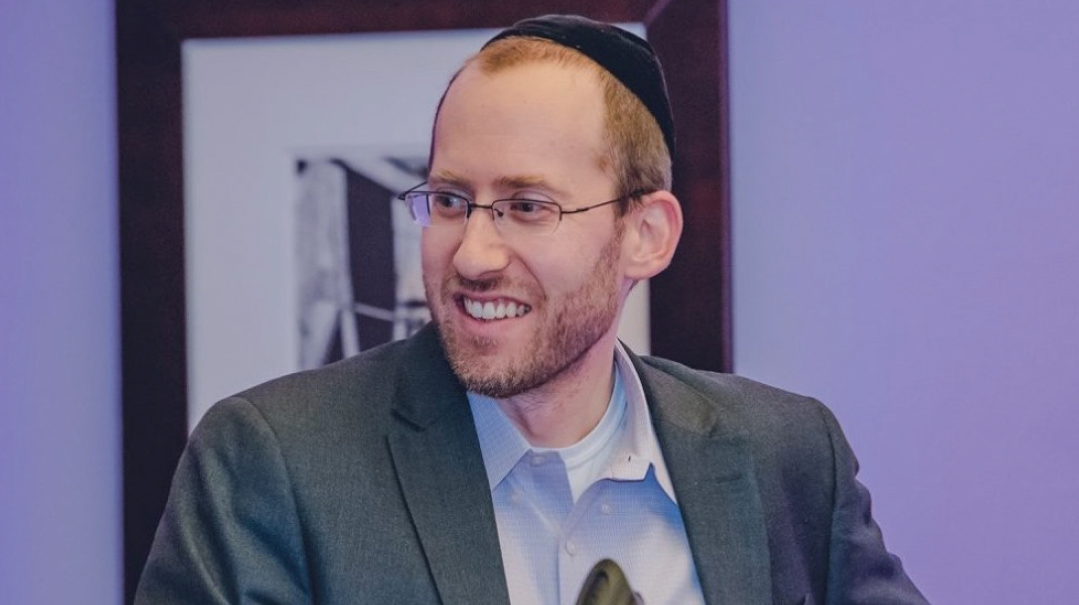
1. How did you get started?
I was never a great sleeper, but my insomnia got really bad when I was around 25, and I was going around to doctors and psychologists and nothing helped. My background is in neuroscience and psychology, and I thought, This is ridiculous, there has to be a better way. After some research and a lot of trial and error, I fixed my sleep issue, and I wanted to share what I learned with others. Now I work as a sleep coach, helping people with issues like insomnia, snoring, apnea, nightmares, and general fatigue. I help them get their sleep — and life — back on track.
2. Who is your clientele?
Mostly the observant Jewish community in the Tristate area, but I also work remotely with people of all stripes from around the world. Most are motivated individuals in their twenties to fifties they tend to be driven and successful, but sleep is a challenge. One that stands out was a fellow therapist who was skeptical — she’d been on sleeping pills too long, knew too much, and couldn’t see this working for her. I told her many of my clients echo a similar sentiment at first. Four days later, she called to tell me she dropped the pills. She hasn’t needed them since.
3. What is the most common question you’re asked?
“What on earth is a sleep coach?!” Some people ask more nicely than that, but everyone thinks it — they’ve never heard of a sleep coach! I explain that I take a holistic view of physical and mental health, helping restore harmony between body, mind, and soul, allowing sleep to come naturally so my clients can get the rest they need to thrive. Everyone should take stock of their sleep, because most of us don’t know whether we’re sleeping well or not. A lot of people walk around tired, grumpy, and hazy, and they think that’s normal — but it’s not. Sleep is an amazing wellspring of energy, health, vitality, and if you aren’t dipping in properly every night, it’s time for an upgrade.
4. Why do people get insomnia?
For some, it’s a mental and emotional block in response to trauma like abuse or divorce. But for most, insomnia isn’t a medical issue — usually you’re thrown off your sleep cycle, have a few bad nights, and then you start worrying. You build up the problem in your mind, it feels like you “contracted” this condition called insomnia, and you resort to over-the-counter sleep aides, and from there medical help and prescription drugs. A lot of times it’s just a matter of reminding your body how to regulate this vital function.
5. How do you resolve sleep issues?
I talk to clients about their histories, health, careers, personalities, and anxieties, and we pinpoint the issue, what’s gotten them into this rut, so we can get them out. Most sleep situations —psychological issues, apnea, snoring, you name it — can be dramatically improved naturally. We also discuss things like sleep hygiene, meaning regulating your environment — phone off, wind down, a serene bedroom, a healthy and balanced diet. One client asked, “My husband hunts, and I make a lot of moose stew. Can I eat that before I go to bed?” Hmm. I don’t know much about moose stew, but I assume it’s like cholent, and I paskened, “Not too close to bedtime, it’s too heavy.”
6. How do you get your clients back on track?
A lot of them have lost what I call sleep confidence — they believe they actually don’t have the ability to sleep. My job is to redirect them. I tell them to post my manifesto to their fridge and as a background on their phone. It says, “I take my sleep into my own hands. I heal myself from the inside out. I’m in total control of my own mind. I don’t have insomnia. I break insomnia.” I also tell them to tell one person, daily, what a great sleeper they are. Walking the walk and talking the talk can help you believe it about yourself, which makes it true, and in time, you reconnect your body to its natural rhythm, so that sleep is no longer an elusive dream.
7. Is there something you wish everyone knew?
The biggie is that sleeping pills are never a great long-term solution. They may work as a Band-Aid, but they lose effectiveness over time, give poor quality sleep, and have dangerous side effects. If you’ve already gone down that road, it’s not too late to change. You can train your mind from the inside out to sleep without pills — I’ve gotten people off of years of heavy doses of multiple sleep medications.
8. What was the most memorable feedback you received?
One of my first clients was an ICU nurse who had been on high doses of sleep medication for eight years, and even with that slept only three to four hours a night. You can imagine how exhausted she was, especially after 12-hour shifts in the ICU! Within a month of working together, she was pill-free, sleeping naturally seven to eight hours a night. She told me I saved her life. That meant a lot, because I knew that by helping her, she now had the energy for her lifesaving work.
9. Is it always about sleep?
No, it’s not always straightforward. A guy on the West Coast was on a whole slew of medications, he had this routine at night where he went through seven or eight pills and substances for a few hours of sleep. He literally flew around the world to get pills in foreign countries because no doctor here would prescribe him that much. The interesting thing was he didn’t actually have insomnia — when we spoke, he mentioned that when he traveled, he slept fine, no medication needed. His sleeplessness was related to a negative association he had with his room, and after identifying that and working through it, he was on his road to recovery.
10. Any good tips for staying up all night, a la Shavuos?
First speak to your rav — consider if it will ruin your Yom Tov and throw you off for a week. For those who do stay up, if you’re one of those gifted souls who can fall asleep anytime, anywhere, nap beforehand, nap after, and you’ll be fine. But for those with a more rigid cycle, I recommend napping early Erev Shavuos afternoon for an hour or two. That night, limit caffeine to the earlier hours of the night; even if you can fall asleep, caffeine in your system diminishes your sleep quality. On Shavuos day, take a shorter nap in the afternoon, and don’t go to bed too late that night. If you do nap that morning, don’t aim to catch up on what you missed, but to fortify yourself so you can get through the day. Don’t sleep deep into the afternoon, which can throw off your cycle for a few days — instead, catch up over the next few nights. Did you know that sleep debt can stay with you for up to two weeks? You’ll need time to recover.
(Originally featured in Mishpacha, Issue 857)
Oops! We could not locate your form.






